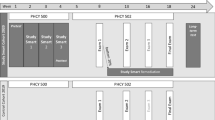Abstract
This short paper is a response to Richard Smith’s ‘Abstraction and finitude: education, chance and democracy’. In his paper Smith contends that a rationalist agenda dominates education and democracy today, and that this agenda by rendering us insensitive to the tragic dimension of life, breeds a sense of hubris, or arrogance towards fate which is fuelled by an inordinate confidence in our knowledge. In the worlds of education and politics it has led to an obsession with management and transparency, and to students who fear to take risks. As a specific example of this, he takes up the recent fixation in universities with learning how to learn, which he says leads to an over-emphasis on skills in the curriculum, and to an ‘audit’ culture. While sympathising with much of his analysis of the latter, my counter-suggestion is that the contemporary world lacks anything but a sense of the contingency of things, to the contrary, that at the heart of its mangerialist culture and its performatist ethos lies the need for reassurance. My response focuses on the politics of the self-directed learner that lies at the heart of the lifelong learning literature, on learning how to learn, on the notion of transparency and on the transparent society, and on the politics of contingency and scepticism.
Similar content being viewed by others
References
Baudrillard, J. (1980). ‘Oublier Foucault’, translated as ‘Forgetting Foucault’, Humanities in Society, 3(1), (Winter), 87–111.
U. Beck (1994) Risk society: Towards a new modernity Sage Publications London
A. Giddens (1991) Modernity and self-identity: Self and society in the late modern age Polity Press Oxford
A. MacIntyre (1990) Three rival versions of moral inquiry Duckworth London
R. Rorty (1980) Philosophy and the mirror of nature Basil Blackwell Oxford
Rorty, R. (1989). Contingency, irony, and solidarity, University of Cambridge Press.
R. Rorty (1990) ArticleTitleEducation without Dogma Dialogue 2 44–47
G. Vattimo (1992) The transparent society John Hopkins University Press Baltimore
K. Wain (2004) The learning society in a postmodern world; The education crisis Peter Lang New York
Author information
Authors and Affiliations
Corresponding author
Additional information
Prof. Kenneth Wain teaches philosophy of education and courses in ethics and political philosophy at the University of Malta, where he is also involved in teacher education. Last year (2004) he published his most recent book The Learning Society in a Postmodern World with Peter Lang (New York). His earlier books were Philosophy of Lifelong Education (1987) Croom Helm (London), The Maltese National Curriculum: a critical Evaluation (1991) Mireva (Malta) Theories of Teaching (1992) Mireva (Malta) The Value Crisis: an Introduction to Ethics (1995) University of Malta Press. He has also published several articles in international refereed journals.
Rights and permissions
About this article
Cite this article
Wain, K. Contingency, Education, and the Need for Reassurance. Stud Philos Educ 25, 37–45 (2006). https://doi.org/10.1007/s11217-006-0001-4
Issue Date:
DOI: https://doi.org/10.1007/s11217-006-0001-4




